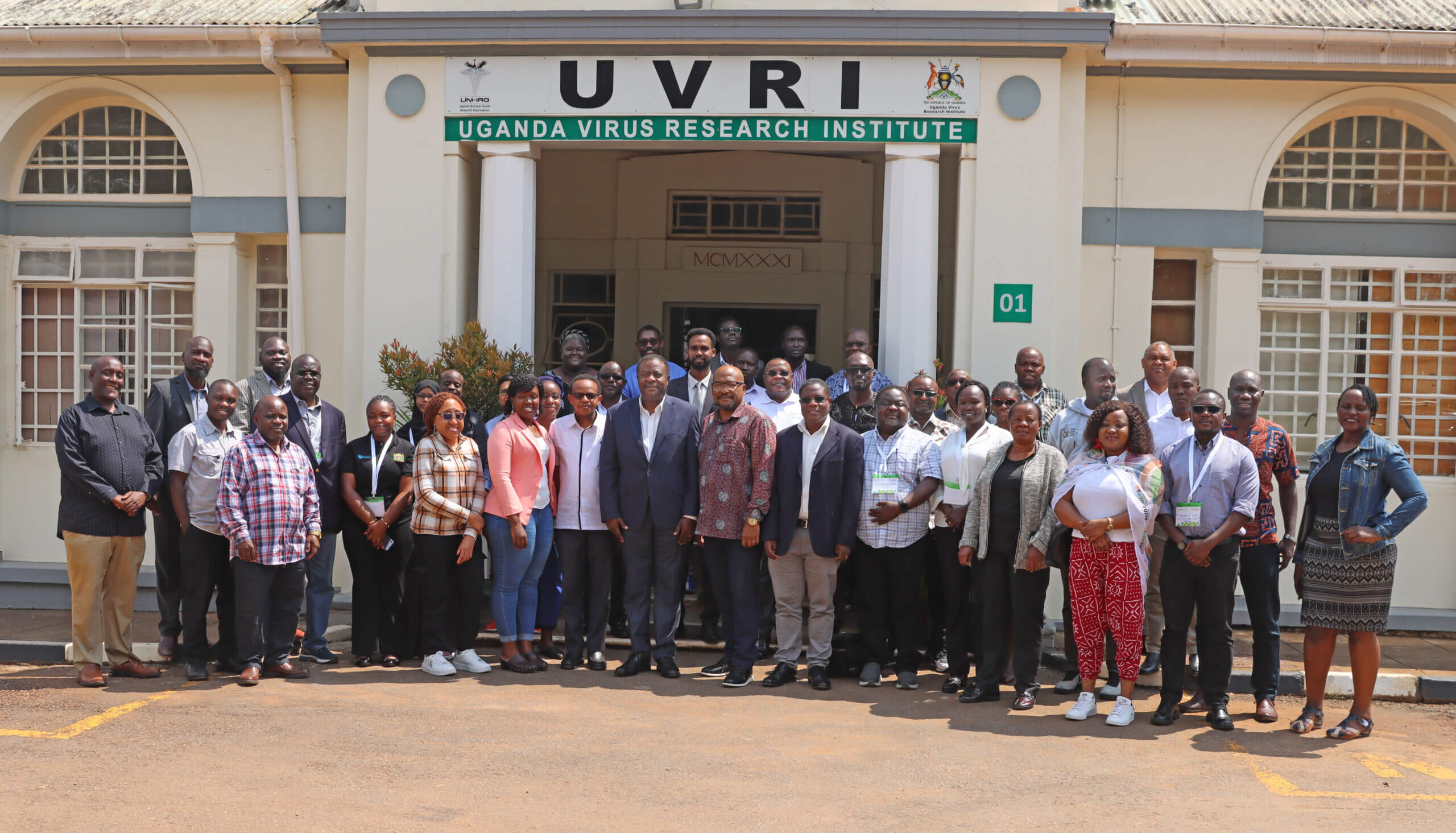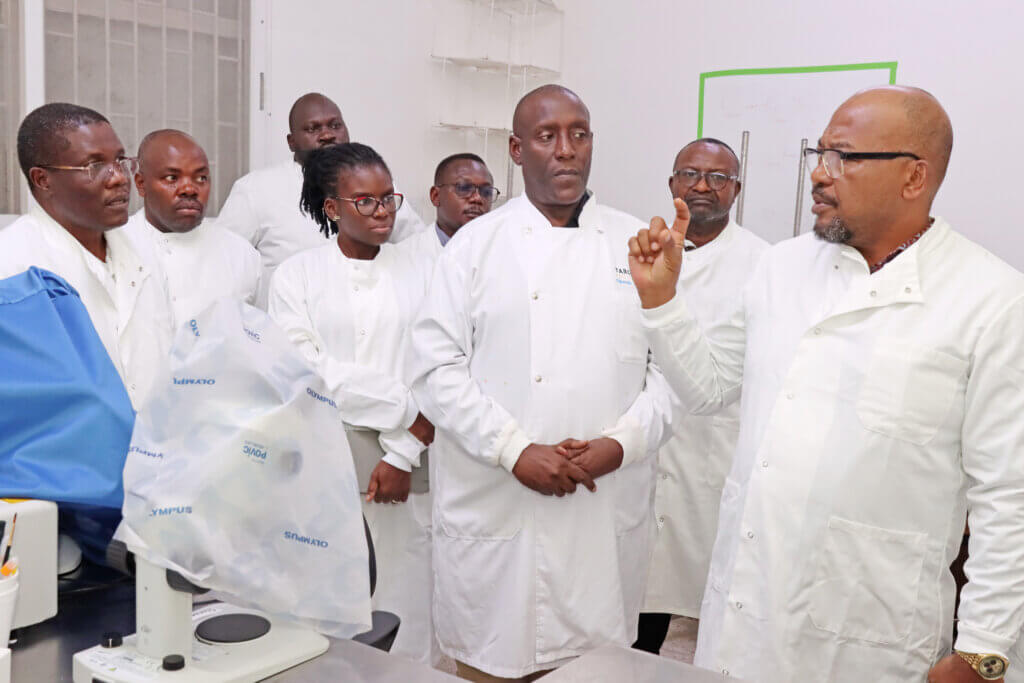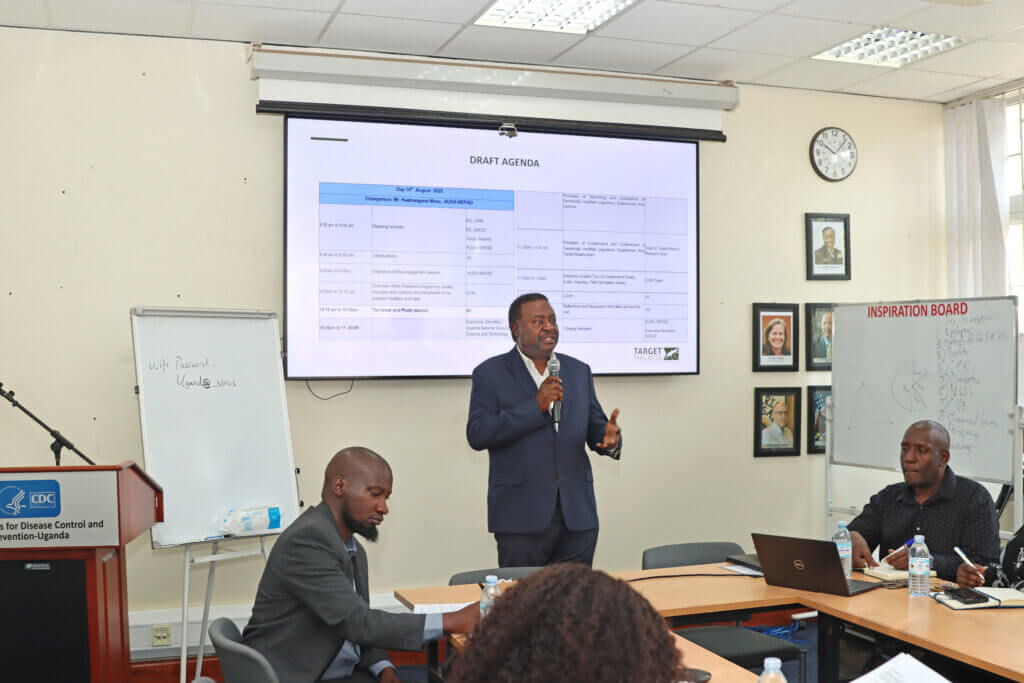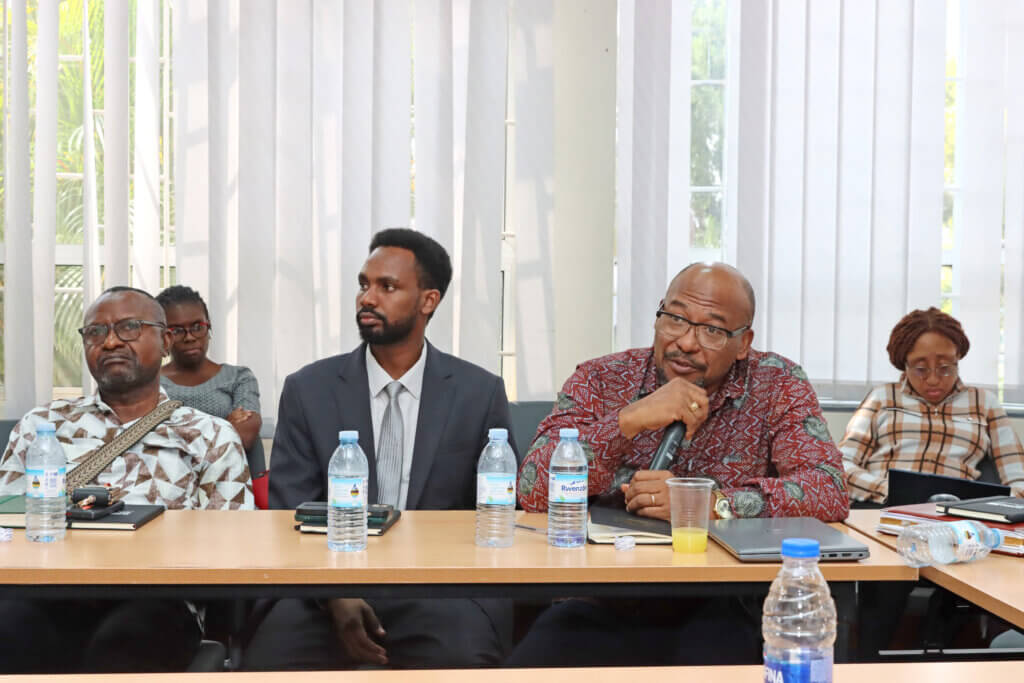AUDA-NEPAD Delegation visits Target Malaria at the Uganda Virus Research Institute


Target Malaria Uganda was honored to host delegates from African member states at the Uganda Virus Research Institute. The delegates were taking part in a benchmarking visit during the East African Regional Engagement on Biosafety and Environmental Regulation for Malaria Elimination, organized by the African Union Development Agency – New Partnership for Africa’s Development (AUDA-NEPAD).
The delegates were welcomed by Prof. Pontiano Kaleebu, Director of the Uganda Virus Research Institute (UVRI), who commended their interest in Uganda’s advancing research on genetically modified mosquitoes, and thanked AUDA-NEPAD for supporting regional dialogue on innovative malaria control strategies.
In his speech, Dr. Johnson Wiltshire, Programme Coordinator at the AUDA-NEPAD and head of the delegation, emphasized the urgent need for Africa to adopt innovative health solutions to effectively address persistent public health challenges. He noted that for African member states to fully benefit from emerging technologies, such as gene drive, regulatory requirements must be harmonized across the region. He further highlighted the importance of ensuring quality, access, and sustainability in the implementation of such innovations.
During his presentation, Dr. Jonathan Kayondo, Principal Investigator at Target Malaria Uganda, briefed the delegation on the project’s mosquito containment standards, Quality Management System (QMS), and the transboundary nature of gene drive technology. He emphasized that gene drive technology remains in the research phase, with several more years of work ahead before any potential release. Highlighting the need for a coordinated regional effort, he noted that mosquitoes are known to cross borders and that effective malaria control requires all neighbours and stakeholders to be engaged collaboratively.
A speech from Dr. Martin Ongol, Acting Executive Secretary of the Uganda National Council for Science and Technology (UNCST), was delivered by Collins Tumusiime, Head of the International Collaboration Unit. He praised Uganda’s leadership in pioneering genetically modified mosquito research, citing UVRI as a model site integrating rigorous science, strong regulatory oversight, and community engagement.
“Emerging technologies like gene drive represent a promising complement to current malaria control tools”
Collins Tumusiime, Head of the International Collaboration Unit, Uganda National Council for Science and Technology (UNCST)
Overall, the tour provided delegates with hands-on exposure to Uganda’s biosafety systems, containment facilities, regulatory frameworks. These areare essential components for the responsible development and deployment of new public health tools while reinforcing the value of regional collaboration in advancing malaria elimination efforts and highlighting Uganda’s central role in shaping the future of vector control innovation in Africa.



